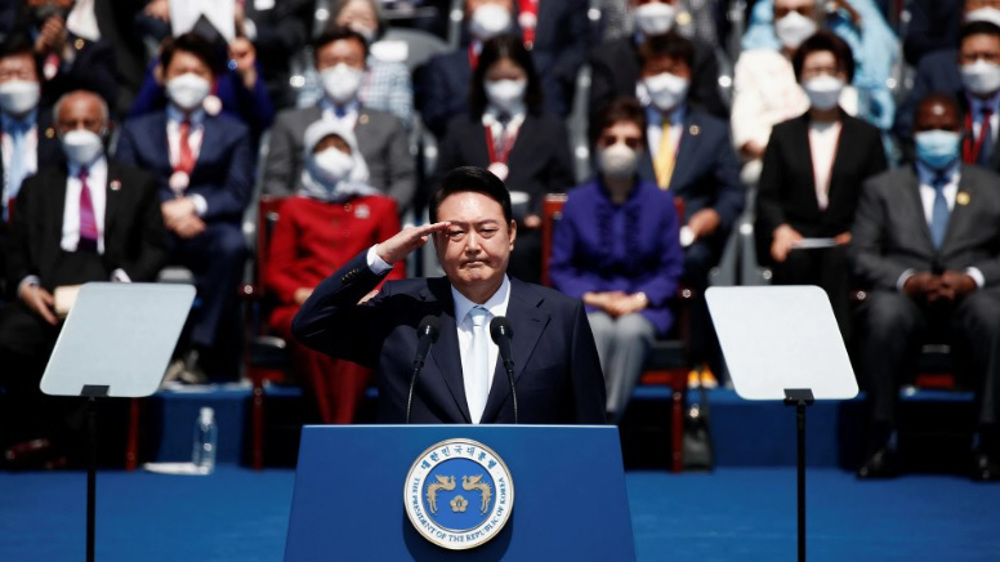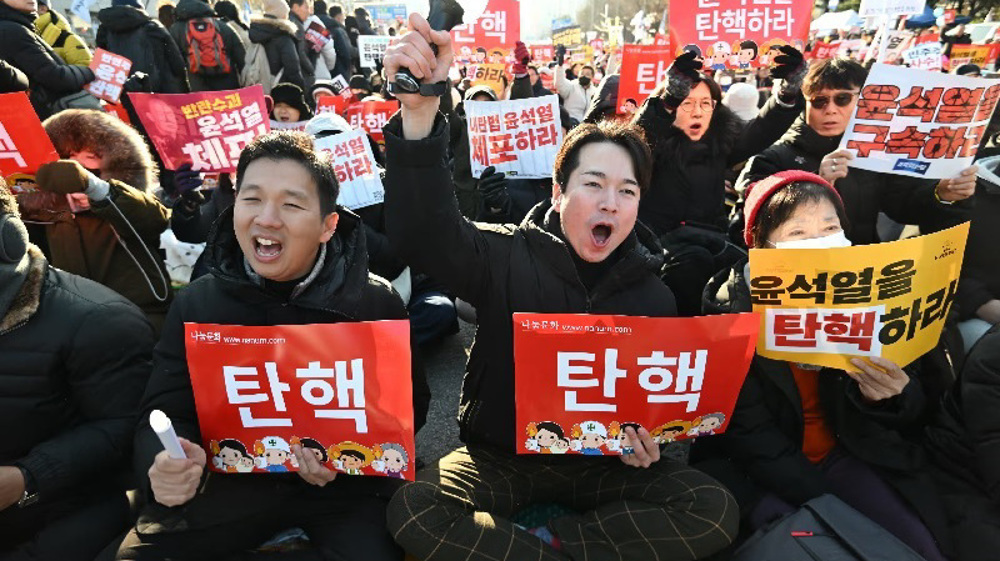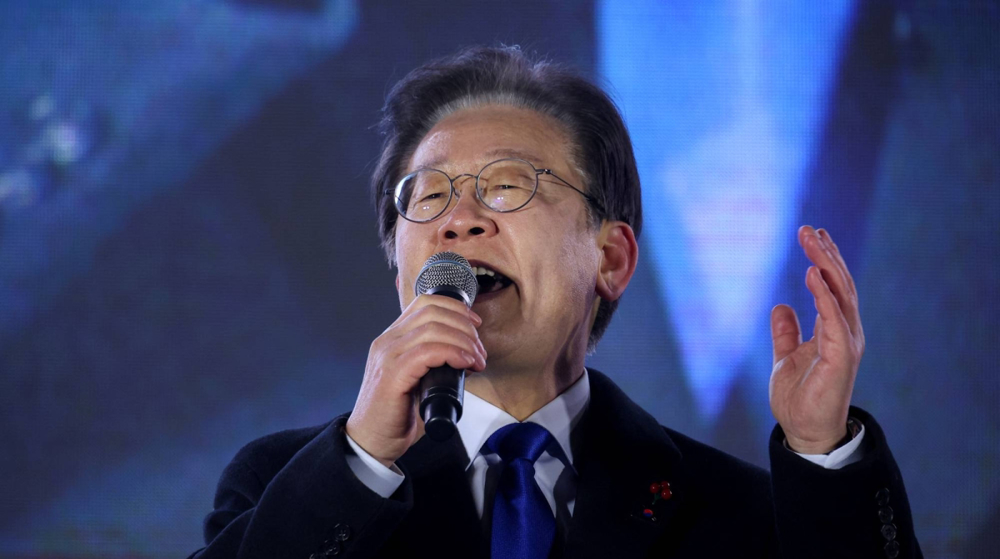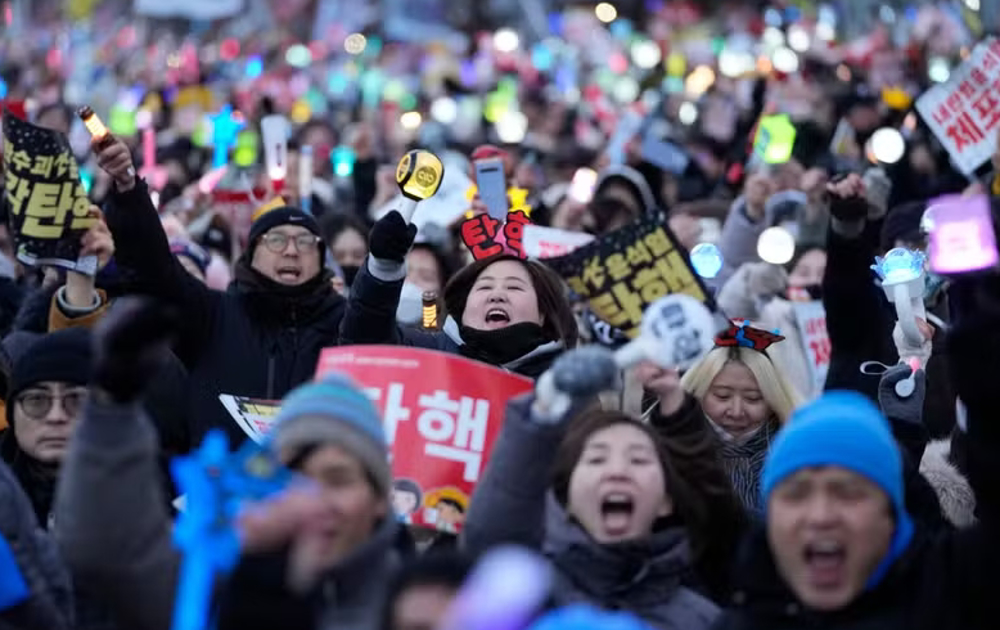South Korea's new hardline president calls North a threat, calls for complete denuclearization
South Korea’s new hardline president has called for the complete denuclearization of North Korea, saying Pyongyang’s weapons program poses a threat to global security.
Speaking during his inauguration ceremony in Seoul on Tuesday, Yoon Suk-yeol said his country is ready to provide an "audacious" economic plan if the North commits to nuclear disarmament.
"If North Korea genuinely embarks on a process to complete denuclearization, we are prepared to work with the international community to present an audacious plan that will vastly strengthen North Korea's economy and improve the lives of its people," Yoon said in his inaugural speech.
He won a tight election in March as the leader of the main conservative People Power Party, less than a year after making his foray into politics following a 26-year career as a prosecutor.
Yoon, 61, is taking office with two big challenges to confront: North Korea’s fast-developing new weapons program and soaring inflation that threatens to disrupt the economic recovery from COVID-19.
The new president has suggested a tougher line on North Korea, warning of a preemptive strike in the event of an attack and vowing to strengthen his country’s deterrent capability.
He has favored stronger ties with the US and adopted a rigid stance toward North Korea, with experts believing Seoul's policy toward Pyongyang will take a turn from rapprochement to more tensions.
However, in Tuesday’s speech, he seemed more willing to reopen stalled peace talks with Pyongyang.
"While North Korea's nuclear weapon programs are a threat not only to our security and that of Northeast Asia, the door to dialogue will remain open so that we can peacefully resolve this threat," Yoon said.
Yoon did not elaborate on his plan to re-engage or provide economic incentives to the North, but Reuters quoted his national security adviser, Kim Sung-han, as saying that his government would devise a roadmap in the early days in which Pyongyang could quickly earn sanctions relief or economic aid in exchange for denuclearisation measures.
Tensions continue to be high in the Korean peninsula as the North has significantly advanced its nuclear and missile program, arguing that it acts as a deterrent against US threats in the region.
Yoon won the mandate on a plank of fighting corruption and creating a level-playing economic field amid deepening public frustration with inequality and housing prices.
South Korea's inflation touched a 13-year high last month after Russia's military operation in Ukraine sent commodity prices soaring across the globe.
Yoon did not mention inflation in his inauguration speech but cited low growth, rising unemployment, and wage gaps as key economic challenges facing his government.
The newly-inaugurated president also described “anti-intellectualism” as the main opposition to democracy, blaming it on polarized politics and deepening internal strife.
“The political process which has the responsibility to address and resolve these issues has failed due to a crisis in democracy, and one of the main reasons for such failure is the troubling spread of anti-intellectualism,” he asserted.
"When we choose to see only what we want to see and hear only what we want to hear ... this is what shakes our trust in democracy."
Some 40,000 people attended his inauguration on the front lawn of parliament, including about 300 foreign guests, including Chinese Vice President Wang Qishan, Japanese Foreign Minister Yoshimasa Hayashi, and Douglas Emhoff, the husband of US Vice President Kamala Harris.
Wang is one of the highest-ranking Chinese officials ever to attend a South Korean presidential inauguration.
The new South Korean president is set to meet US President Joe Biden when he visits South Korea on May 20 before heading to Japan.
D-8’s role in Iran’s economy after Cairo summit
China slams US as ‘war-addicted’ threat to global security
China ‘firmly opposes’ US military aid to Taiwan
VIDEO | Press TV's News Headlines
President Yoon Suk Yeol to be removed from office
At least 19 Gazans killed by Israeli airstrikes since dawn: Medics
Leader: Iran neither has nor needs proxy forces
US fighter aircraft shot down ‘in friendly fire’ amid aggression on Yemen










 This makes it easy to access the Press TV website
This makes it easy to access the Press TV website